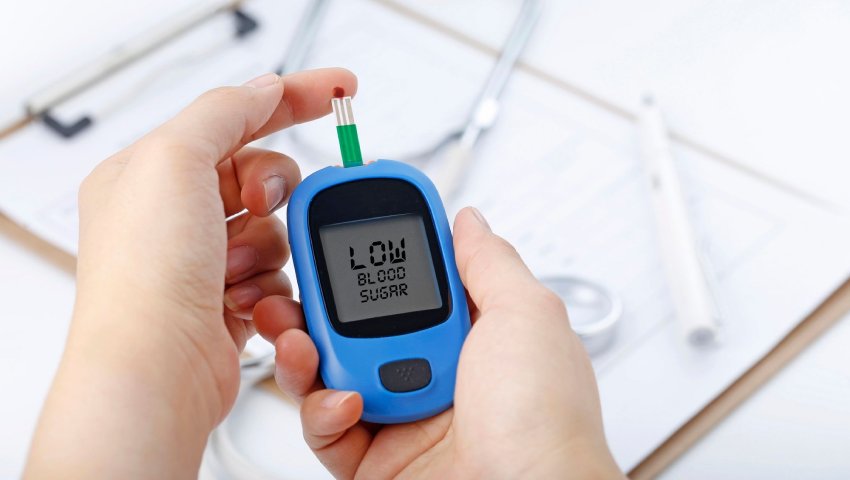
- 02/06/2025
- Leela Superspeciality Hospital
- 0 Comments
- Blogs
How to Control Blood Sugar Levels? A Guide to Effective Diabetes Management
Diabetes has become one of the most common chronic health conditions affecting people of all age groups. With the increasing prevalence of Type 2 diabetes, mainly due to sedentary lifestyles and poor dietary habits, controlling blood sugar levels is more crucial than ever. Uncontrolled blood sugar can lead to severe complications like heart disease, kidney damage, vision problems, and nerve damage. But the good news is—diabetes can be managed effectively with the right knowledge, tools, and lifestyle choices.
In this comprehensive guide, Dr. Sarang Barbind, a leading Diabetologist in Pune at Leela Superspeciality Hospital, explains how you can take control of your blood sugar levels and lead a healthy, fulfilling life.
Understanding Blood Sugar and Diabetes:
Blood sugar (or blood glucose) is the main type of sugar found in your blood. It comes from the food you eat and is the body’s primary source of energy. Insulin, a hormone produced by the pancreas, helps glucose get into your cells to be used for energy.
Diabetes happens when your body either doesn’t produce enough insulin (Type 1 Diabetes) or doesn’t use insulin effectively (Type 2 Diabetes). This leads to high blood sugar levels, which over time can harm organs and tissues.
Signs of Poorly Controlled Blood Sugar:
Before diving into management tips, it’s important to recognize the signs of high or poorly controlled blood sugar:
- Frequent urination
- Increased thirst
- Blurred vision
- Fatigue
- Slow healing of wounds
- Unexplained weight loss
If you experience these signs, consult a General Physician in Pune like Dr. Sarang Barbind at Leela Superspeciality Hospital for timely diagnosis and intervention.
Follow a Diabetes-Friendly Diet:
Your diet plays a vital role in managing diabetes. A well-balanced diet can help stabilize blood sugar levels, maintain a healthy weight, and prevent complications.
Tips for a diabetes-friendly diet:
- Choose complex carbohydrates: Whole grains, brown rice, oats, and legumes help regulate blood sugar better than refined carbs.
- Limit sugary foods and drinks: Avoid sodas, sweets, and processed snacks.
- Eat more fiber: Fruits, vegetables, and whole grains improve digestion and blood sugar control.
- Watch your portions: Eating in moderation helps avoid spikes in blood sugar.
Exercise Regularly:
Physical activity enables your body to use insulin more efficiently and reduces blood sugar levels naturally.
Recommended exercises:
- Walking: Just 30 minutes a day can create a difference.
- Strength training: Improves muscle mass and insulin sensitivity.
- Yoga: Reduces stress and improves glucose control.
- Aerobic exercises: Swimming, cycling, or dancing are excellent choices.
Monitor Your Blood Sugar Levels:
Regular monitoring gives you real-time feedback on how your lifestyle and medications are affecting your blood sugar.
Ways to monitor:
- Home glucose monitors: Easy and quick.
- Continuous glucose monitoring (CGM): Provides a more detailed picture.
- A1C test: Conducted every 3–6 months by your doctor to assess long-term control.
At Leela Superspeciality Hospital, we offer advanced diabetes care that includes continuous monitoring devices and expert consultations.
Take Medications as Prescribed:
Medication plays a key role in controlling diabetes, especially if lifestyle changes alone are not enough.
Medication tips:
- Never skip doses.
- Take your medicine at the same time daily.
- Discuss side effects with your doctor.
- Never adjust your dose without medical advice.
Dr. Sarang Barbind emphasizes, “Medications must be tailored to individual needs. Some patients may need oral medications, others may require insulin. Regular follow-up helps determine the best approach.”
Manage Stress Levels:
Chronic stress can spike blood sugar levels by triggering the release of stress hormones like cortisol.
Ways to manage stress:
- Practice deep breathing or meditation.
- Engage in hobbies.
- Seek professional counseling if needed.
- Get adequate sleep (7–8 hours a night).
Avoid Smoking and Limit Alcohol:
Both smoking and excessive alcohol can interfere with diabetes control.
- Smoking narrows blood vessels, making complications like heart disease worse.
- Alcohol can cause blood sugar to drop dangerously low, especially when consumed without food.
Routine Check-Ups:
Regular check-ups with your diabetologist are vital for tracking progress and detecting complications early.
At Leela Superspeciality Hospital, Dr. Sarang Barbind and his team offer:
- Personalized diabetes management plans
- Nutritional counseling
- Foot and eye screenings
- Diabetes education sessions
These benefits ensure that patients receive comprehensive care under one roof.
Stay Hydrated and Sleep Well:
Dehydration can lead to elevated blood sugar levels. Drink sufficient water throughout the day to keep your body functioning optimally. Sleep is another often overlooked factor. Poor sleep affects insulin sensitivity and improves appetite, leading to poor glucose control.
Conclusion:
“Diabetes is not just about sugar; it’s about controlling your life holistically. With the right knowledge, tools, and support system, you can lead a healthy, active, and fulfilling life.” Effective diabetes management is a lifelong journey that involves commitment, education, and the right medical guidance. At Leela Superspeciality Hospital, our goal is to empower every person with diabetes to take charge of their health and live well. If you or a loved one is struggling to control blood sugar levels, don’t wait. Visit Leela Superspeciality Hospital today for expert care and a personalized diabetes management plan tailored to your needs.
Book an appointment with Dr. Sarang Barbind today and take the first step towards healthier living.

